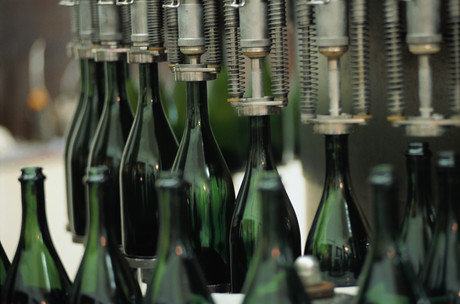Machine use optimisation in Australian wineries
Thursday, 27 July, 2017

Artificial intelligence is helping the Australian wine industry to significantly increase production efficiency by optimising machine use. Surely this system would have applications across at least all beverage manufacturers, if not the entire food industry.
The artificial intelligence (AI) program has been developed Ailytic, a South Australian-based company that devises decision support solutions for manufacturing, food and beverage, packaging and general process and discrete industries. The company’s software enables decisions that generate significant returns by utilising AI-enabled algorithms to create production schedules in a full web-based application. Lightweight, easily deployed, cloud-based or on-premise with significant end-user focus, the company’s solutions turn planners and schedulers into analysts with easy what-if comparative modelling of complex operational environments.
Pernod Ricard, Accolade Wines, Angove Family Winemakers and Treasury Wine Estates are some of the wineries that are streamlining their manufacturing through Ailytic’s AI technique — prescriptive analytics. This enables users to account for all the variables that go into mass-producing wines, such as grape variety, packaging and finished product inventory.
The program then creates the best possible operation schedule, allowing companies to save considerable time and money.
Pernod Ricard Global Business Solutions Manager Pauline Paterson said AI was highly beneficial for the wine industry and helped to increase the bottom line. “We use it mainly around production line and use it to derive the most efficient way to produce our product,” she said.
“It is definitely helpful with changeover, how many bottles we need, how much wine and what order to do everything in.”
Ailytic’s system is able to obtain essential information from wineries using remote sensors, which are placed on equipment and around winemaking facilities. These sensors track a number of key metrics, including throughput, machine uptime and changeover time from red to white when bottling. This includes the subclassification of each colour, such as sweet red, dry red, aromatic white and fortified wines.
Ailytic’s program ensures that wine is changed quickly, without contamination, bottled using appropriate glassware, labelled and then packaged appropriately. The sensors then transmit the data to a computer in real time using Wi-Fi.
A single production run for bottling can take anywhere from one hour to two days, but Ailytic’s system reduces time spent changing the line set-up by up to 30%.
Pernod Ricard is the world’s second leading wine and spirits company, with a network of growers across six countries and €8.68 billion in sales in 2015. Its brands include Jacobs Creek, Campo Viejo, Brancott Estate, Kenwood Vineyards and Wyndham Estate.
Ailytic co-founder and CEO James Balzary said the company’s AI program was perfect for the wine industry because it thrived in complex environments.
“Our algorithms work well for things like packaging, bottling and general manufacturing — the wine industry is where we are seeing a lot of appetite and the most uptake,” he said.
“People think of wine as a romantic artisan type of process, and it is when you are producing small batches or super-premium wine, but the majority of wines we drink are mass-manufactured in big, complex tank operations. That’s where we come in — the more complex the business, the bigger the benefit.
“Even though the bigger wineries would find this more useful, even smaller operations will benefit from this,” Balzary said.
“It’s an affordable solution that used to only be accessible to bigger companies, but we try to focus on bringing advanced capabilities to Tier 2 and Tier 3 manufacturers and service providers.”
Premium snack maker meets growing demand
UK chip manufacturer Burts has greatly increased its production capacity, enabled by TNA's...
Heat exchangers expand ginger beer production
Bundaberg Brewed Drinks ensured the equipment in its new Master Brewery maintained product...
In-house ginger processing for beverage maker
A ginger beer manufacturer reduces its supply risk by investing in pack-house technology to...














